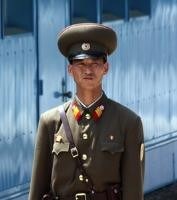
On March 11, North Korea declared that it would withdraw from the 1953 armistice that stopped the war on the Korean Peninsula. In an email interview, Balbina Y. Hwang, a visiting professor at Georgetown University and a former adviser at the U.S. State Department who has written extensively on the Koreas, discussed the significance of the move and its likely impacts. WPR: Technically, what does the armistice control? Balbina Y. Hwang: The Korean Armistice, signed on July 27, 1953, established the parameters of a cease-fire between the official warring parties of the Korean conflict: the Democratic People’s Republic of Korea […]

